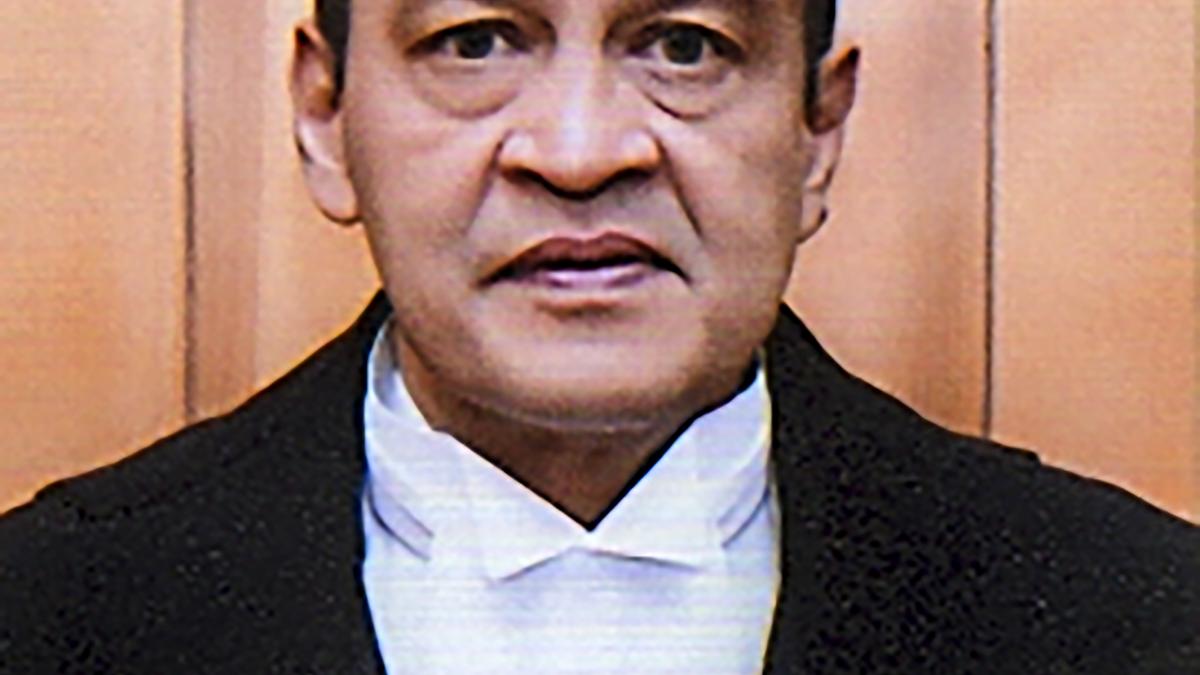In this image taken from www.allahabadhighcourt.in is a profile of Justice Yashwant Varma.
| Photo Credit: PTI
The Supreme Court on Friday (March 28, 2025) said the Chief Justice of India can refer to the Parliament to initiate removal or sanction the registration of a First Information Report (FIR) against High Court judge, Justice Yashwant Varma, if the in-house inquiry committee authenticates the allegations concerning the discovery of half-burnt currency at his official residence premises following a blaze on the night of March 14.
“Right now, the in-house process is going on. Once the committee submits its report, the Chief Justice of India has all options open before him. He can agree to the registration of an FIR or refer the committee’s report to the Parliament for removal,” Justice A.S. Oka, heading a Bench with Justice Ujjal Bhuyan, addressed advocate-petitioner Mathews J. Nedumpara.

Mr. Nedumpara has asked why an FIR was not registered in neither the incident of fire nor the alleged finding of the money at Justice Varma’s residence.
“Today is not the day or time to consider an FIR. Today it is too premature. The inquiry is going on,” Justice Oka responded.
As per a Constitution Bench judgment of 1991 in the K. Veeraswami case, no criminal case can be registered against a High Court judge, Chief Justice of a High Court or a Supreme Court judge without prior consultation with the Chief Justice of India. Mr. Nedumpara contended that the judgment had fettered the police by creating a “special class of privileged men/women, immune from the penal laws of the land”.
He further questioned the jurisdiction of the three-member committee comprising three High Court judges constituted by the Chief Justice of India on March 22 to conduct an in-depth inquiry into the allegations against Justice Varma.
The in-house procedure was approved by the Supreme Court in 1999. It is based on the spirit of two important charters governing judicial ethics— the Restatement of Values of Judicial Life and the Bangalore Principles of 2002. The ‘Restatement of Values of Judicial Life’ is the primary code of ethics governing judicial behaviour adopted by the Supreme Court on May 7, 1997.
The decision to form a committee, which is the second stage of the in-house inquiry procedure, was based on a preliminary enquiry report submitted by the Delhi High Court Chief Justice D.K. Upadhyaya on March 21 recommending a “deeper probe” into the allegations.
The in-house procedure was devised keeping in mind the sensitivity of conducting a probe into allegations against a sitting judge, the individual integrity of the parties and the preservation of institutional reputation. Even though the three-member Committee is at liberty to devise its own procedure, there is an inherent requirement that it must follow the rules of natural justice while probing the authenticity of the allegations.
The ongoing inquiry is diving deep into three questions put forth by the CJI during the preliminary probe, that is, how does Justice Varma account for the money allegedly found in the room; the source of the money; and who removed it from the room on March 15.
“But it is the job of the police to investigate, not the court’s,” Mr. Nedumpara argued on Friday.
The lawyer said he represented the common man who had several questions about the incident, including “why no FIR was registered on March 14? Why were no arrests made? Why was the money not seized? Why was no mahazar prepared? Why did it take over a week for the public to know about the scandal? Why did the Supreme Court and its Collegium not tell the public at large that such a shocking incident had happened and that it is in possession of the video and records sent to it by the Ministry of Home and other agencies? Why did the Chief of the Fire Force go on to deny that no cash was recovered and thereafter contradict it?”
He also sought a revival of the Judicial Accountability Bill of 2010, which had lapsed over a decade ago. Justice Oka responded that the court cannot be expected to wander into the legislative domain
The court refused to entertain his arguments further, plainly recording in its order that an inhouse inquiry into Justice Varma’s case was in progress and it would be “inappropriate” to entertain this petition. The Bench said “wider prayers” included in the petition need not be gone into at the current stage.
Published – March 28, 2025 02:18 pm IST
